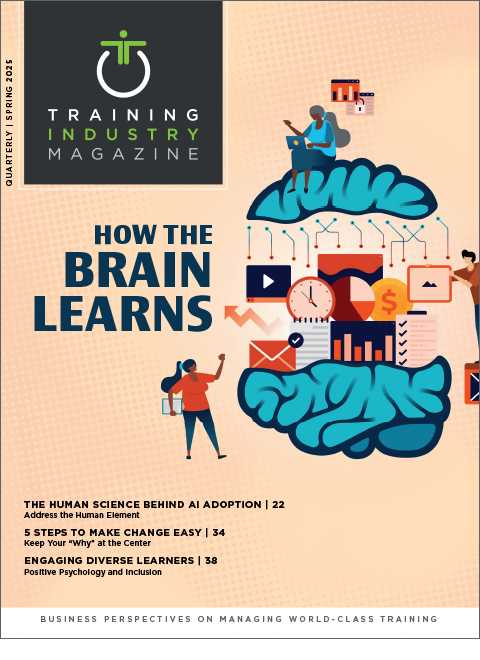
Published in Spring 2025
My first boss was my best boss (although it would take me years to fully appreciate this). Mr. K was a seasoned retailer who knew the business inside and out. And yet, he took a personal interest in me — a 17-year-old part-timer. He was reliable and consistent in his support — even when some of my harebrained promotional ideas didn’t play out as anticipated. And I could count on him for the truth, whether related to my performance, budgets or opportunities to grow. He recognized my potential and made it possible for me to optimize it. I credit him in many ways for who I am — and where I am — today.
And yet it wasn’t until last year that I fully understood the underlying dynamics at play in our relationship — the dynamics that produced such profound and lasting development. Last November, I attended a retreat and had the pleasure of meeting Charles Feltman, author of “The Thin Book of Trust.” As we chatted about our work, we quickly discovered synergies between his groundbreaking work on trust and my passion for helping leaders facilitate employee growth. His “four domains of trust” serve as a simple yet profound framework to strengthen relationships and, by extension, enable development. They also helped me understand that my experience of growth with Mr. K so many years ago was enabled in large part by the trust that he inspired.
The Four Domains of Trust
Feltman’s framework offers a powerful way for leaders to evaluate and strengthen their capacity for inspiring trust in others. But it also offers tactical guidance for those who want to help their employees grow, optimize their potential and thrive.
Care: “You matter beyond the job you do.”
Career development literally and figuratively begins with care. Employees need to feel valued by their leaders. Leaders can accomplish this by:
- Showing a genuine interest in their employees’ aspirations and challenges.
- Engaging in ongoing career conversations.
- Putting employees’ needs above their own or their department’s needs.
Sincerity: “You can count on me to tell you the truth.”
Information is ubiquitous today. Leaders who try to hide or soft-pedal the truth find that their credibility suffers. By contrast, transparency and honesty inspire genuine trust in others. Leaders can accomplish this by:
- Treating employees like adults, telling them the good, the bad and the ugly.
- Offering candid and helpful feedback.
- Sharing realistic assessments of potential, limitations and opportunities.
Reliability: “Commitments made are commitments kept.”
Nothing erodes relationships more quickly than broken promises. When leaders proactively follow through, it sends a message that they matter and builds high levels of trust. Leaders can accomplish this by:
- Documenting and reviewing action items from development conversations.
- Scheduling follow-up conversations to ensure mutual accountability.
- Actively advocating for employees when opportunities arise.
Competence: “I’ve got the knowledge and confidence to be helpful.”
Leaders must demonstrate that they’re capable of providing meaningful and helpful guidance. Leaders can accomplish this by:
- Understanding the organization, its structures and strategies.
- Becoming fluent in existing development frameworks, tools and strategies.
- Building relationships with peers to open broader opportunities.
As these actions suggest, building the trust that’s required for employees to grow and flourish doesn’t require bold, time-consuming strategies or action. Rather, it’s the way leaders show up — day in and day out — in the simple and frequently organic moments with others that send the message, “You’re safe and you can trust me.”
Before training leaders in internal systems or development dialogue mechanics, we should be helping them build a foundation of trust for real, sustainable growth. Only when leaders commit to trust will employees be willing to stretch, learn and contribute at their highest level. When that happens, development becomes a natural and unstoppable force and trust becomes an embedded element within an organization’s culture.
